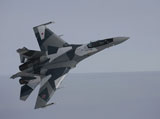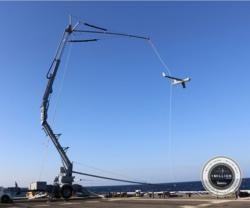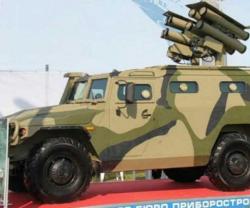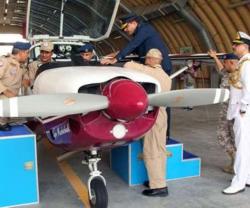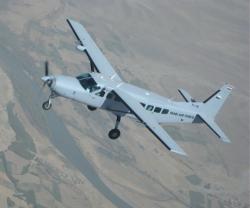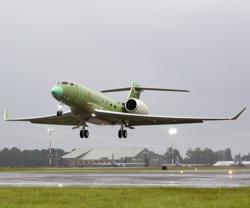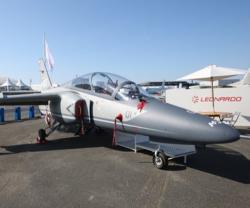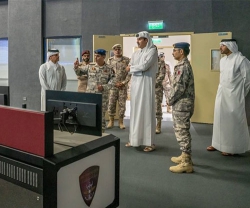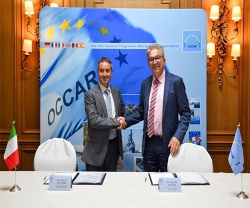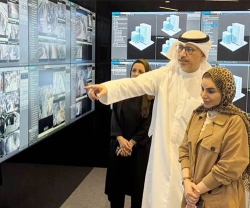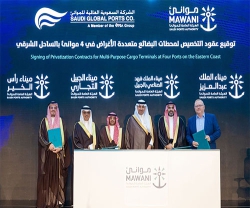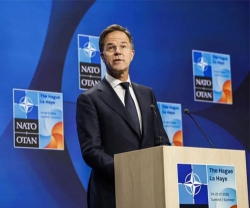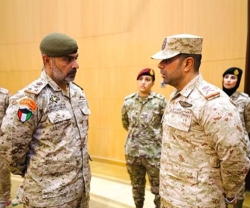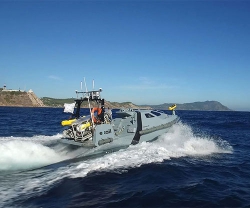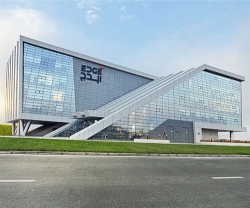Sukhoi: Flight Test for 3rd Serial Su-35S Fighter
20.01.2012 Security
The 3rd serial multi-purpose fighter Su-35S-3 piloted by test pilot Taras Artsebarsky took off the airfield of the Komsomolsk-on-Amur Aircraft Production Association named after Yuri Gagarin (KnAAPO) on Wednesday.
Various modes of propulsion and integrated control system as well as stability and controllability characteristics were tested for more than 2 hours. Operation of engines, systems and equipment proved to be flawless.
The Su-35 fighters have already flown more than 400 flights on the flight tests program. The first and second Su-35s were delivered to the 929th State Flight Test Center (GLITS) for the State Joint Tests (SJT), and on August 15 last year they started to implement the agreed program. At the same time the first serial production fighter -- Su-35S-1 has also joined the program.
The first and second Su-35s carried out preliminary flight tests. The basic set of flight and technical specifications of the on-board equipment and the characteristics of super maneuverability, stability and control characteristics, the characteristics of the power plant, the work of the navigation system were fully confirmed during the tests. The maximum ground-level speed is 1,400 km/h, speed at altitude - 2400 km/h, the ceiling - 18 thousand meters. The detection range of targets in the “air-to-air” mode is over 400 km. This is significantly higher than that of the combat aircraft currently in service. The onboard OLS (optical locator station) can detect and track multiple targets at ranges exceeding 80 km. The complex is ready to undergo testing for operational use.
The Su-35 is a thoroughly upgraded super-maneuverable multi-role fighter of the 4++ generation. It employs technologies of the fifth generation that assure its superiority over similar class fighters.
The special features of the aircraft include a new avionics suite based on digital information control system integrating onboard systems, a new phased antenna array radar with a long aerial target detection range and with an increased number of simultaneously tracked and engaged targets (30 aerial targets tracked and 8 targets engaged plus the tracking of 4 and engagement of 2 ground targets), and new enhanced vectored thrust engines.
The Su-35 has a diverse suite of long-, medium- and short-range weapons. It can carry guided aerial munitions for anti-radar and anti-ship actions as well as general purpose munitions, guided and unguided aerial bombs. The radar signature of the fighter has been reduced by several times as compared to that of the fourth-generation aircraft by coating the cockpit with electro-conducting compounds, applying radio absorption coats and reducing the number of protruding sensors.
The service life of the aircraft is 6,000 hours flight hours; the life cycle is 30 years of operation. The assigned service life of vectored thrust engines is 4,000 hours.
Various modes of propulsion and integrated control system as well as stability and controllability characteristics were tested for more than 2 hours. Operation of engines, systems and equipment proved to be flawless.
The Su-35 fighters have already flown more than 400 flights on the flight tests program. The first and second Su-35s were delivered to the 929th State Flight Test Center (GLITS) for the State Joint Tests (SJT), and on August 15 last year they started to implement the agreed program. At the same time the first serial production fighter -- Su-35S-1 has also joined the program.
The first and second Su-35s carried out preliminary flight tests. The basic set of flight and technical specifications of the on-board equipment and the characteristics of super maneuverability, stability and control characteristics, the characteristics of the power plant, the work of the navigation system were fully confirmed during the tests. The maximum ground-level speed is 1,400 km/h, speed at altitude - 2400 km/h, the ceiling - 18 thousand meters. The detection range of targets in the “air-to-air” mode is over 400 km. This is significantly higher than that of the combat aircraft currently in service. The onboard OLS (optical locator station) can detect and track multiple targets at ranges exceeding 80 km. The complex is ready to undergo testing for operational use.
The Su-35 is a thoroughly upgraded super-maneuverable multi-role fighter of the 4++ generation. It employs technologies of the fifth generation that assure its superiority over similar class fighters.
The special features of the aircraft include a new avionics suite based on digital information control system integrating onboard systems, a new phased antenna array radar with a long aerial target detection range and with an increased number of simultaneously tracked and engaged targets (30 aerial targets tracked and 8 targets engaged plus the tracking of 4 and engagement of 2 ground targets), and new enhanced vectored thrust engines.
The Su-35 has a diverse suite of long-, medium- and short-range weapons. It can carry guided aerial munitions for anti-radar and anti-ship actions as well as general purpose munitions, guided and unguided aerial bombs. The radar signature of the fighter has been reduced by several times as compared to that of the fourth-generation aircraft by coating the cockpit with electro-conducting compounds, applying radio absorption coats and reducing the number of protruding sensors.
The service life of the aircraft is 6,000 hours flight hours; the life cycle is 30 years of operation. The assigned service life of vectored thrust engines is 4,000 hours.
Previous PostSaab Inks Support Agreement with Sikorsky
Latest news
Latest events
DefenPol China2025 - 7th Guangzhou International Defense & Police Exhibition & Summit
11 - 12 Jul 2025Nan Fung International Convention & Exhibition Center (NICEC) - ChinaIDEF 2025 Turkey - International Defence Industry Fair
22 - 27 Jul 2025Istanbul Expo Center - TurkeyDSEI 2025
09 - 12 Sep 2025Excel, London - United KingdomIntersec Saudi Arabia
29 Sep - 01 Oct 2025Riyadh International Exhibition & Convention Centre - Saudi Arabia

